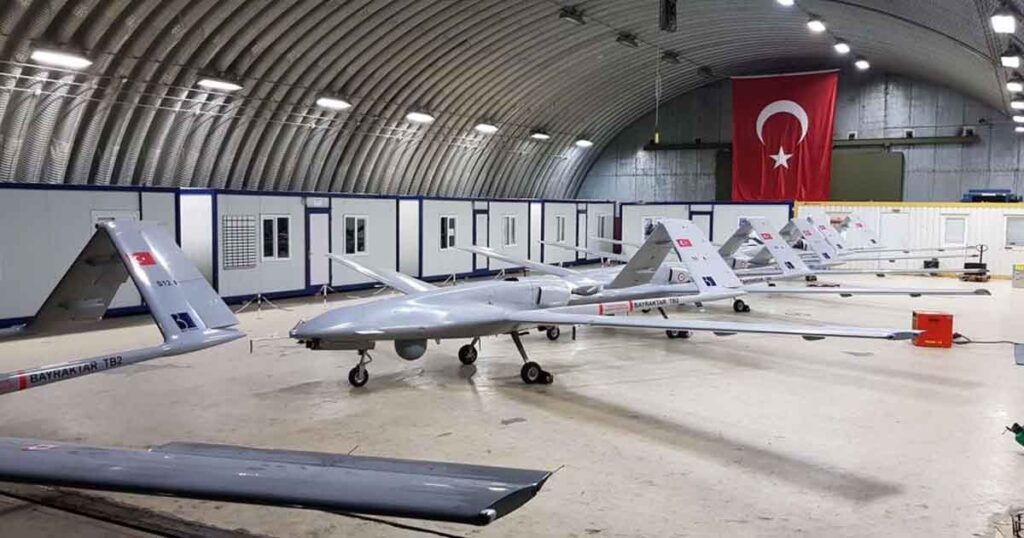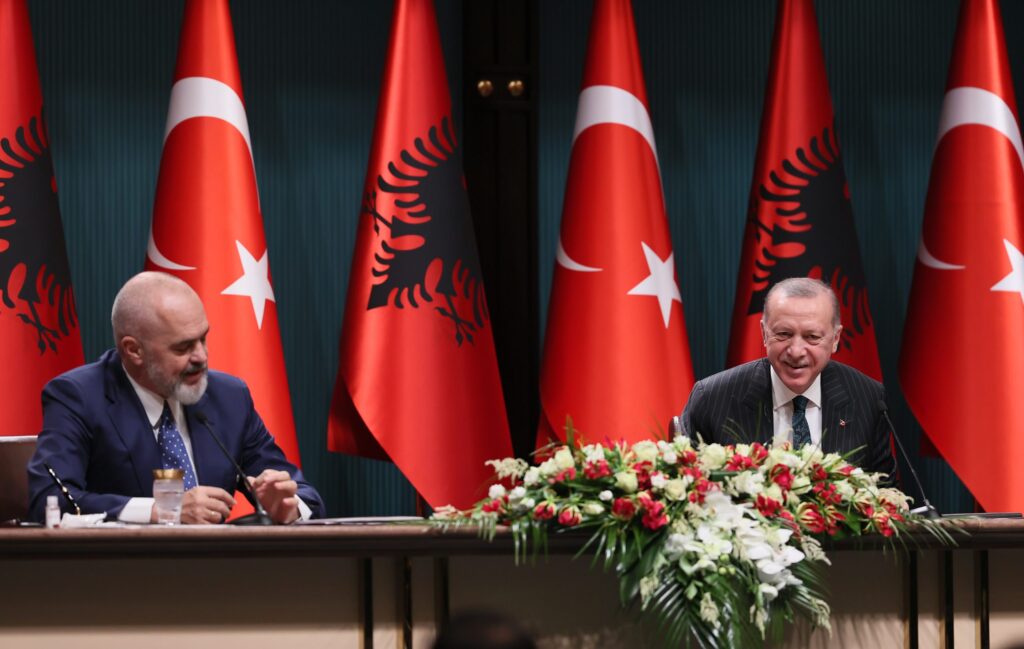A few days ago, the Grand National Assembly of Turkey ratified the defense agreements concluded in recent months with four Balkan countries: Albania, Kosovo, Romania, and North Macedonia. Of the four countries, Albania is of particular interest, in which, in addition to selling weapons systems and training, Turkey seeks to build a naval base, using the NATO mantle as a pretext.
First revealed on Sunday by Real, Turkey has signed with the Balkan countries, which will be valid for five years. These include some common and some additional individual elements, which also show Ankara’s intentions in the Balkans.
In particular, there are 10 conditions that are common, including, among others, the exchange of military experience through joint exercises but – and most importantly – through training in Turkish military schools and camps, as well as support for the transfer of technology and services and the exchange of information at a classified level.
Additionally, these agreements facilitate logistical support and resources, either as grants or “through structured payments,” with Turkish industry emerging as the big winner.
Cooperation at the defense industry level is especially noteworthy, as the other three countries lack infrastructure, with the exception of Romania. Turkey appears willing to build small support units for the weapons systems it is willing to sell. The drones are manufactured by Baykar, the company of Erdogan’s son-in-law, which has also become the representative of the country’s defense industry.

Ankara is reportedly placing particular emphasis on the training of the military personnel of the four countries, laying the foundations for the Turkification of their armed forces and instilling in them its ideals, culture, and ideals. Ankara’s plan is long-term, hence its initial five-year duration with the condition of renewal, focusing on the training of today’s young military personnel, who will be called upon to take the reins of their armed forces tomorrow.
As military circles commented in Real, “in this way, Ankara is creating bonds of military dependence between the four countries.”
Turkey’s plan for the Balkans is not new. However, for the first time, it has been drawn up in a structured and methodical manner, emphasising Albania. The relations between the leaders have the two countries have a deep history, as does Turkey’s interest in creating a naval base in the Avlona (Αυλώνα, Albanian: Vlorë) region.

Ankara’s ties with Tirana are growing closer. According to Turkish media, Turkey is one of the country’s largest investors with $3.5 billion, while 600 Turkish companies employ over 15,000 people in Albania. Erdogan also gifted the country an unspecified number of Bayraktar TB2 drones last December, when the defense deal with Albania was signed, in addition to the 2022 order.
Regarding Kosovo, Turkish Foreign Minister Hakan Fidan himself, during a press conference with his Kosovar counterpart, Donika Gërvalla-Schwarz in September 2024, described the country as a “strategic partner”, making particular mention of the training of members of the Kosovo Security Force (KSF).

Turkey has a large military presence in Kosovo, with 780 soldiers as part of NATO’s KFOR peacekeeping force. Kosovo has also been added to the list of countries that have purchased Turkish Bayraktar drones, with the addition scheduled for 2023.
In North Macedonia, Turkey has already provided domestically manufactured armored vehicles, while with Romania, cooperation is mainly focused on the navy, on whose behalf it is reportedly close to an agreement to build 2+2 Hisar corvettes, which are an evolution of the previous Ada class but with more armament.
The ratification of these agreements by the Grand National Assembly is of paramount importance because once published in the Government Gazette, they will allow the Turkish military to enter into secondary agreements with foreign partners without further parliamentary approval. This method limits public debate on the scope and extent of Turkey’s overseas military activities.
Military sources commented to Enikos on these moves by Turkey, describing them as extremely worrying, specifically pointing out that “it is attempting to militarily encircle Greece, which may even lead to a revision of military planning.”
As the sources explain, the presence of warships in Avlona essentially creates an additional maritime surveillance area with more resources for the Greek Navy in the Ionian Sea. The same applies to the presence of Turkish soldiers – even with the mantle of a NATO ally – in Albania and North Macedonian.
READ MORE: Greece has its eyes on the Indian Air Force and the Barak-8s.
